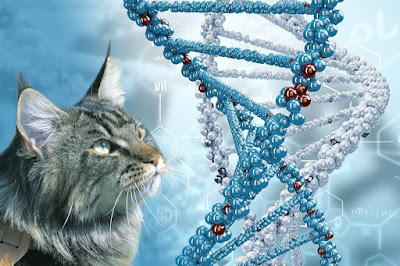Animal genetics is a branch of veterinary medicine that studies the inheritance of various traits and patterns of variation in animals. It is based on general genetic principles and employs various techniques such as hybrid analysis, cytological analysis, population genetics, ontogenesis, and twin methods. These techniques help determine the inherited features of various physiological and morphological traits in different species. The study of genetics is also helpful in determining the relationship between genes and productivity in animals.
There are many types of animal genetics tests available. The most commonly used tests are the ones related to domestic and exotic birds. For dogs and cats, there are a variety of breed-specific tests available. Horses and rabbits are another popular source of information for animal genetics. They are often bred to improve their performance and health. Their DNA is tested to determine their breed. If a breed is susceptible to a specific disease, the breeding of a particular strain can prevent the disease from affecting its offspring.
The science of animal genetics has many applications, including food and health. Besides determining which genes cause which traits, animal genetics also offers genetic tools to determine which treatments are the best for animals. It is also useful to study the effects of the environment on an animal's behavior. Some of these techniques are highly effective and have helped scientists develop new drugs and treatments. They have improved our understanding of the genetics behind animal health and welfare.
Besides studying morphological traits, animal genetics also explains why animals have certain characteristics. Several developmental defects are caused by lethal or semilethal genes. If an individual bears a lethal gene, the offspring are either born deaf or have low viability. Heterozygotes, on the other hand, can produce nonviable offspring. Therefore, animal genetics is an important branch of the study of evolution.
In addition to studying morphological traits, animal genetics can also explain the occurrence of many common traits. For example, animal breeds can differ in size or color due to the genetics of their parents. In this way, animals can have an advantage over humans in terms of body weight. If they have a higher body mass, they have a higher chance of surviving and reproducing. Similarly, if the animals have low viability, the offspring can develop into a more healthy form.
Previously, farmers valued those traits in their animals that increased productivity. They selectively selected their best animals and selected them as parents of their next generation. In the process, improvements were made in the traits that were easily visible and had a reasonable heritability. While these improvements were made for a variety of reasons, the goal of animal genetics is to understand why certain animal traits are important in a given species.
An important aspect of animal genetics is its ability to predict the behavior of an individual animal. For instance, an individual can have a variety of traits that can affect their behavior. Some of these traits can be caused by mutations in certain genes that cause an animal to grow poorly. Moreover, animals can have many different types of genes. They differ in their chromosomes. Some animals may have more chromosomes than others.





No comments:
Post a Comment